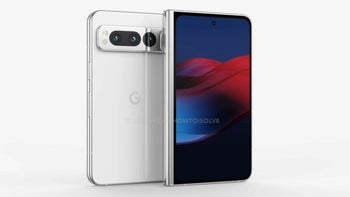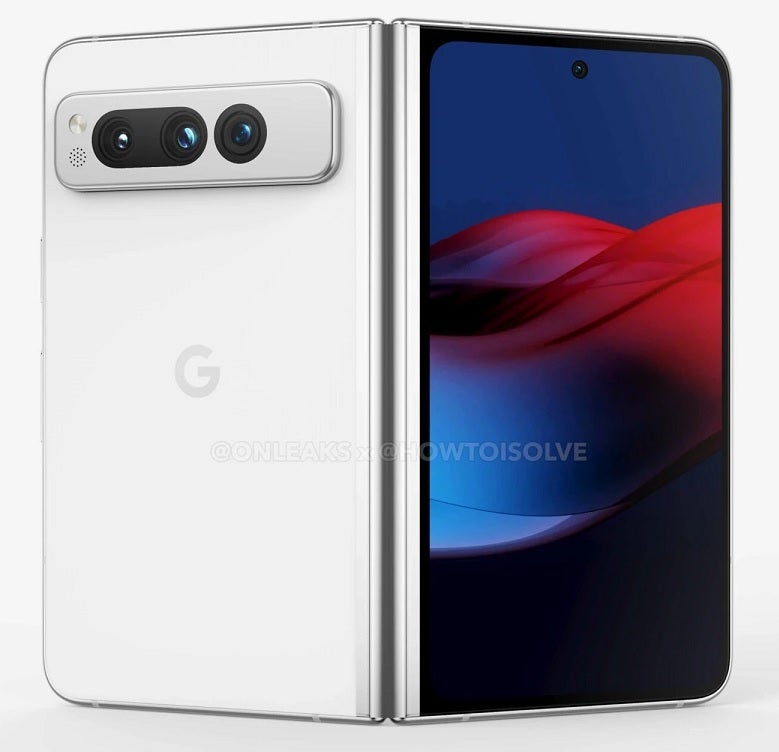Pixel Fold no longer expected to crash Google I/O; October release is likely

The upcoming Google I/O developer conference is expected to take place in early May as usual. Back in the early days of Android, those attending the conference would receive a free device. For example, in 2010 Google shipped out free Motorola DROID and Nexus One handsets to those who purchased tickets to the conference. These days, Google is more apt to use the event to promote upcoming new products rather than hand them out.
Don't expect the Pixel Fold to be introduced during this May's Google I/O
Last year, Google used the event to reveal images of the Pixel 7 series, the Pixel Watch, and the Pixel Tablet as Google expands its ecosystem. This year, we figured that Google would use the developer conference to release the mid-range Pixel 7a and the Pixel Fold; the latter would be Google's first foldable phone. But according to The Elec (via AndroidHeadlines), the Pixel Fold is not going to be ready in time to greet the light of day in May.

Render of the Pixel Fold
The report blames the inability to have the Pixel Fold ready in time for I/O on delays Google is having with the foldable's two panels, both of which are being sourced from Samsung. The exterior "cover screen" is a 5.78-inch panel while the interior display is a 7.57-inch screen. As we previously told you, The Elec states that Samsung Display won't be mass producing the two displays until July or August which obviously rules out a May launch of the device.
With the delay in receiving the Pixel Fold's displays, the most logical time to expect the release of the Pixel Fold would be in October, when Google traditionally unveils and releases the next iterations of its high-end Pixel phones. This year, we should see the unveiling and release of the Pixel 8 and the Pixel 8 Pro. The Pixel 8 series could be equipped with an upgraded primary camera sensor and an early rumor called for an improved ultrasonic under-display fingerprint scanner to replace the often criticized optical sensors employed on the Pixel 6 and Pixel 7 lines.
Speaking of the Pixel 7 series, the renders we've showed you of the Pixel Fold reveal that the device will sport a rear camera bar similar to the one on the Pixel 7 Pro. The internal tablet-sized display will have an aspect ratio more in line with the Oppo Find N and Oppo Find N2 than the Galaxy Z Fold 4. The latter has an internal display that is more portrait mode than landscape while the former's internal display is more landscape mode than portrait.
The delay could mean that the Fold gets the latest Tensor chip and Android 14
The Pixel Fold will be powered by the same SoC that runs the Pixel 7 line, the Google Tensor 2. Certainly not the most powerful chipset found under the hood of a smartphone this year, the Tensor 2 allows the Pixel 7 series to be equipped with many of the AI-related features it offers including one that restores old, blurry photos and makes them clear and sharp. These photos can be from other cameras and phones.
And the Tensor 2 also drives the Face Unlock face-recognition feature although Google won't allow it to be used to verify transactions made using the Pixel 7 or Pixel 7 Pro. The delay makes us wonder about a couple of things for the Pixel Fold. With a possible October release we could see Android 14 pre-installed instead of Android 13 and the Pixel Fold could end up powered by the Tensor 3 instead of the Deux. After all, we would expect these specs for the Pixel 8 line and they both could be unveiled side-by-side in October.
The Pixel Fold isn't going to be cheap with pricing expected to be similar to the Galaxy Z Fold 4's $1,799 for the most basic configuration which should include 12GB of RAM and 128GB of storage.










Things that are NOT allowed: